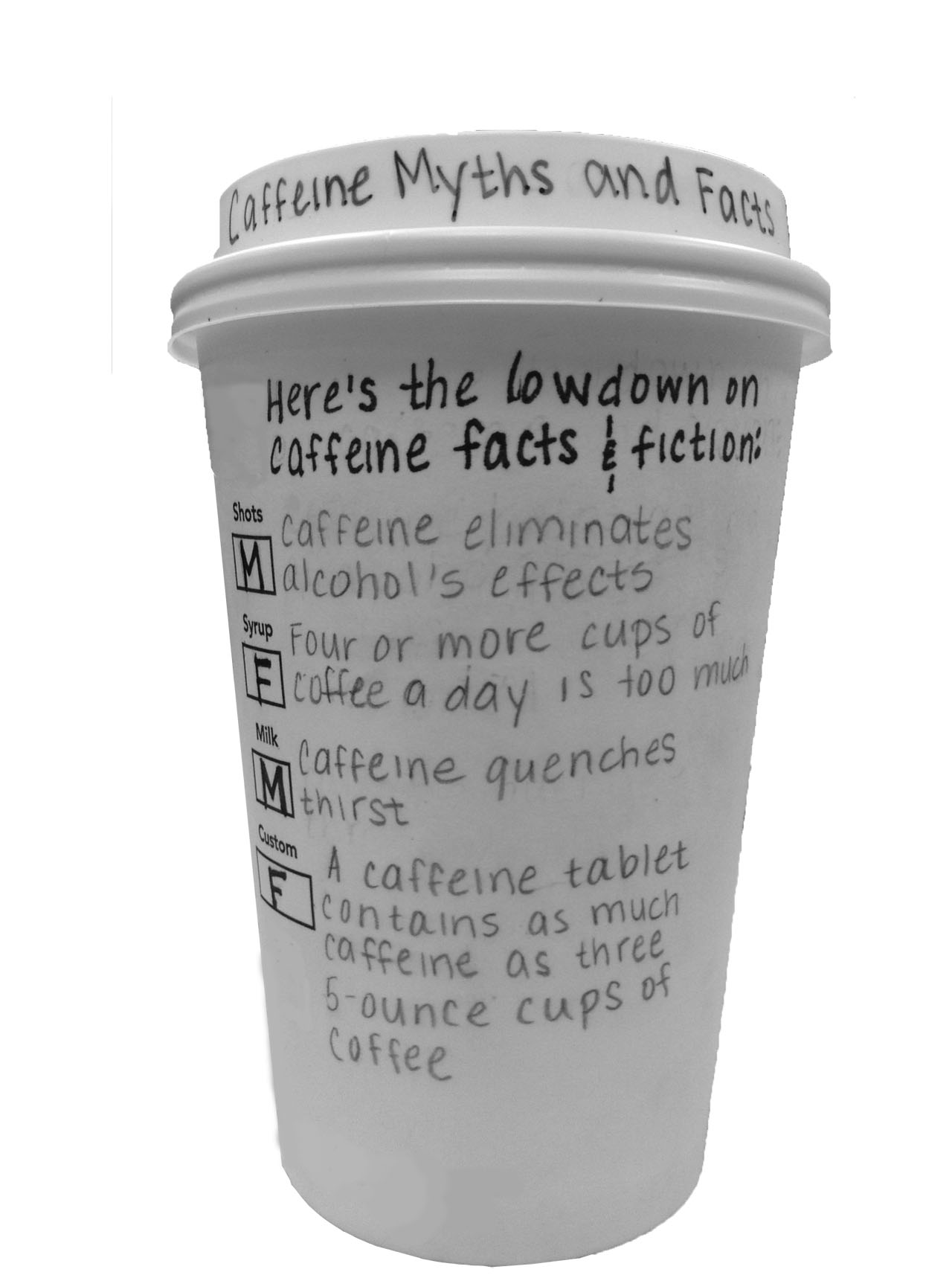
“I wake up in the morning,” said junior Rachel Schubert. “I have a cup of coffee, and then I have a cup in the cafeteria. Then I go home and have another cup, actually two, and then I go to Caribou [Coffee] and get my drink with six shots of espresso, which is like 850 milligrams of caffeine, and then I have dinner and then a cappuccino if I’m out of coffee at home.”
This is Schubert’s daily routine. Caffeinated drinks are a part of her diet. Schubert said that she is “addicted.”
According to dietitian Carole Ortiz, the effects of caffeine are based on the amount consumed. Ortiz said that caffeine should be limited.
Most people consume caffeine, whether through coffee, tea, chocolate or other foods and drinks. Ortiz said although it is a normal part of a teenager’s diet, it is a drug that can have severe effects on people.
According to Ortiz, caffeine is a stimulant that can cause poor sleep patterns. Since many teens already experience a lack of sleep, the addition of caffeine can potentially cause even more sleep deprivation.
“As you hear people say ‘I have such a headache. I really need my coffee. I can’t wake up,’ that is actual withdrawal,” said Ortiz. “It is a drug.”
“I think the coffeehouse popularity has made us treat [caffeine] less like a drug than we used to,” Ortiz said.
According to Ortiz, caffeine can also affect personality and behavior. People who do not receive their normal dosage of caffeine and those who are having caffeine in a higher dosage than usual can suffer from irritability.
“I would advise teens to recognize that caffeine isn’t as innocent as it might seem and to use it thoughtfully and to use it only in moderation,” Ortiz said.
Schubert said coffee and energy drinks used to make her feel jittery and awake, but since she drinks them so often, she now feels nothing.
Ortiz said that as people drink more caffeine, they become tolerant to it. If Schubert does not have caffeine, which she calls a “necessity,” she believes she experiences withdrawal symptoms.
“On Tuesday I didn’t have coffee, and I washed my hands seven times before 11 [a.m.],” Schubert said.
Schubert recognizes that the amount of caffeine she consumes is not healthy.
“Along with the harmful effects of caffeine, there are some benefits,” said Ortiz. “It is protective against Parkinson’s disease, and it does help people stay alert.”
According to Ortiz, exercise is the best healthy alternative to stimulate the brain and increase energy and focus.
“If I had a teen at GBN that argued, ‘The only way I’m going to finish this paper is if I have a cup of coffee’ and I was arguing with them not to have the cup of coffee, I would probably tell them to take a walk around the block and wake yourself up,” Ortiz said.

